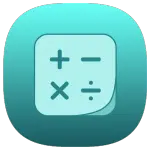
English बोलने के लिए Grammar के बेसिक knowledge, रूल्स और स्पोकन को समझ होनी चाहिए । परन्तु grammar के अनुसार अंग्रेजी बोलने या फिर exam में English question को हल करने के लिए English Grammar का अध्ययन बारीकी से करना महत्वपूर्ण होता है। दोस्तों आज हम यहाँ Narration in Hindi और इसके पार्ट Direct and Indirect के बारे में पढ़ेंगे ।
Narration Definition in grammar
किसी व्यक्ति द्वारा किसी कथन या कहानी को व्यक्त करने की क्रिया को narration कहते हैं। Narration को Speech भी बोला जाता है।
Direct -She said to me, “I am cooking food.”
Indirect – She told me that she was cooking food.
Types of Narration in Hindi
Narration को दो तरह से व्यक्त किया जाता है –
( i ) Direct speech
( ii) Indirect speech.
Direct speech :-
जब किसी वक्ता ( Speaker ) के कथन ( Statement ) को उसी शब्दों में व्यक्त किया जाता है। इसको Inverted commas ( “-” ) के बीच रखा जाता है।
Direct speech वक्ता की बात को ज्यों का त्यों अर्थात् उसके ही शब्दों में दोहरा देते हैं।
Example
Direct – She said to me, “I am cooking food.”
उसने मुझसे कहा, “मैं खाना बना रही हूं”
Direct Speech
(i) Reporting verb
(ii) Reported Speech
She said to me, “You are a good boy”
↕ ↕
( Reporting speech) (Reported speech)
(i) Reporting verb: वक्ता द्वारा बात शुरू करने के लिए प्रयुक्त verb reporting verb कहलाता है। Inverted comma से बाहर के भाग में तीन प्रमुख चोजें होती है।
(i) Subject (वक्ता)
(ii) Reporting verb
(iii) Object
(ii) Reported speech: वक्ता द्वारा जो बात कही गई हो, उसे reported speech कहते हैं ( या inverted comma में प्रयुक्त वाक्य )
Example – She said to me, “You are a good boy”
Note: Direct speech reporting verbs are reported speech tense में परिवर्तन होता है।
Indirect speech : –
Indirect speech में हम किसी अन्य व्यक्ति के शब्दों को अपने शब्दों में व्यक्त करते हैं। इसको Inverted commas ( “-” ) के बीच नहीं रखा जाता है।
Example
Indirect – She told me that she was cooking food.
उसने मुझसे कहा कि वह खाना बना रही है.
Note – Indirect speech में वक्ता के कथन का आशय नहीं बदलता केवल कहने का तरीका बदलता है।
- Assertive Sentence
- Interrogative Sentence
- Imperative Sentence
- Exclamatory Sentence
- Optative Sentence
TYPE-I: ASSERTIVE SENTENCE
Assertive sentence में direct speech को indirect speech में बदलने के नियम : –
- Comma एवं Inverted comma (,”) के स्थान पर conjunction that’ का प्रयोग करें।
- ‘Say to’ को ‘tell’ तथा ‘said to’ को ‘told’ में बदलें, लेकिन say/sald को ज्यों का त्यों ही रखें।
- Reported speech possessive adjectives at nominative case pronouns बदलें
- 1st person (I, we, my, our) reporting verb (r.v.) subject
- 2nd person (you, your) को r.v.के object के अनुसार |
- 3rd person (He, she, it, they, his, her, its, their) change
Example
| (i) He said, “I am intelligent.” | Direct speech |
| He said that he was intelligent. | Indirect speech |
| He said to me, “You are very honest. | Direct speech |
| He told me that I was very honest. | Indirect speech |
| (iii) He said to them, “He played very well.” | Direct speech |
| He told them that he had played very well. | Indirect speech |
4. Reporting verb यदि present and future tense में हो तो reported speech के tense में कोई परिवर्तन नहीं होगा।
Example
(i) She says, “I am at home”.
She says that she is at home. (Indirect speech)
5. (i) Reporting verb यदि Present में हो, तो reported speech में निम्नलिखित परिवर्तन होंगे –
Simple Present (s/es + v, do/ does) = Simple past (v₁/did)
Present Continuous = Past continuous (was/were + v, + ing) (is/am/are + v, + ing)
Present Perfect (has/have + v) = Past Perfect(had + v3)
Present Perfect Continuous (has/have + been + v, + ing)-Past Perfect Continuous (had + been + v, + ing)
Reporting verb यदि past में हो, तो reported speech में निम्नलिखित परिवर्तन होंगे –
Past Indefinite = Past Perfect (had + v3) (v₁/did)
Past Continuous = Past Perfect Continuous (had + been + v, + ing) (was/were + v, + ing)
Future tense में इस प्रकार से होते हैं –
- Shall/ will = should / would
- May = might
- Can = could
Note: यदि reported speech में कोईuniversal fact, habitual facts, proverbs/ Idioms, common sense (general facts) या past के दो simultaneous actions दिये गये हों, तो reported speech के tense में कोई change नहीं होगा।
Example
(i) Teacher said. “The earth revolves round the sun”.
Teacher said that the earth revolves round the sun.
(ii) She said, “When I was cooking, he was playing. (at simultaneous actions)
She said that when she was cooking, he was playing.
(ii) यदि Reporting verb past tense’ में हो, तो reported speech में आए कुछ शब्दों में इस प्रकार बदलाव होता है।
- This – That
- Here – There
- These – Those
- Ago – Before
- Hence – Thence
- Hither – Thither
- Now – then
- Today day – that day
- Tonight – that night
- Tomorrow – The next day/ the following day
- Yesterday – The previous day/ the day before
6 Reported speech में यदि was were had का प्रयोग main verb के रूप में किया जाता है, तो इनमें कोई change नहीं होता है।
Example
Roma said to Hema, “Rajan was absent.”
Roma told Hema that Rajan was absent.
7. Reported speech में जो noun या pronoun सम्बोधन कारक (vocative) में हो, तो उसके लिए reporting verb में addressing का प्रयोग किया जाता है।
Example
He said, “My boy, I may come late”.
Possop Addressing his son, he told him that he might come late.
8. Reported speech में must का प्रयोग नैतिक कर्त्तव्य/जिम्मेदारी/नियम आदि का बोध कराए, तो Indirect speech में must में कोई परिवर्तन नहीं होगा।
Example
They said, “One must do one’s duty.”
They said that one must do one’s duty.
Note : लेकिन यदि must का प्रयोग present या future के अर्थ में हुआ हो, तो इसको आवश्यकतानुसार has to, have to, had to, will/would have to में बदल जाता हैं।
Example
She said, “I must do the work.”
She said that she had to do the work.
9. Could, Must, Ought to, Should, Might, Used to, anft Indirect Speech कोई परिवर्तन नहीं होगा।
10. वाक्य के अर्थ के अनुसार modals में भी आवश्यकतानुसार change किए जाते हैं।
Example
He said, “If I get selected in Indian team, I need not take part in state tournaments.”
He said that If he got selected in Indian team, he would not have to take part in state tournaments.
TYPE-II: INTERROGATIVE SENTENCE (?)
Interrogative Sentence को Direct से Indirect में निम्न प्रकार से बदला जाता है:
1. ‘Said/Said to’ को Asked, Enquired, Questioned, आदि शब्दो में बदले |
2.’Question Mark (?) full stop (.) में बदले |
3. ‘Indirect Speech’ में sentence interrogative में न होकर assertive sentence में होगा अत: helping verb का प्रयोग subject के बाद होगा।
4. (,”) comma/inverted comma को if या whether में बदल दिया जाता है, लेकिन याद रखें कि ‘Wh family words’ के वाक्य में किसी भी conjunction का प्रयोग नहीं किया जाता है, बल्कि उसी ‘Wh’ word का प्रयोग किया जाता है।
5 Tense तथा Pronoun आदि में बदलाव नियमानुसार होंगे।.
6. यदि interrogative sentence में yes तथा no जैसे शब्दों का प्रयोग हो, तो उन्हें निम्न प्रकार से बदलें, जैसे
Yes changes into answered / replied in affirmative.
No changes into answered / replied in negative.
7. यदि interrogative sentence में Dear/Darling/My beloved जैसे शब्दों का प्रयोग हो, तो उन्हें हटाकर lovingly शब्द का प्रयोग करें।
8. यदि interrogative sentence Sir/Madam/Your Honour जैसे शब्दों का प्रयोग हो, तो उन्हें हटाकर respectfully या affectionately शब्द का प्रयोग करें।
Example
(i) She said to her daughter, “Do you want ice-cream?” (Direct Speech)
She asked her daughter if she wanted ice-cream.(Indirect Speech)
वाक्य said to को askedमें बदला गया है तथा interrogative sentenceमें Do + v, को indirect speech में v2में बदला गया है तथा subject नियमानुसार बदला गया है।
(ii) said to her, “What can I do for you”?(Direct Speech)
He asked her what he could do for her. (Indirect Speech)
वाक्य मे Wh-family होने के कारण Indirect speech में किसी भी conjunction का प्रयोग नहीं किया गया है तथा helping verb का प्रयोग subject बाद किया गया है।
(iii) I said to him, “Would you like to go on a trip to Goa?” (Direct Speech)
I asked him if he would like to go on a trip to Goa. (Indirect Speech)
वाक्य में would जो एक auxiliary verb है, indirect speech में नहीं बदला जाएगा।
(iv) She said to him, “Sir, can I borrow your pen”? He said, “yes. (Direct Speech)
She asked him respectfully if she could borrow his pen. affirmative. He answered in affirmative.(indirect Speech)
वाक्य में Sir की जगह respectfully का प्रयोग किया गया है, जो एक सम्मानसूचक शब्द है तथा Yes जो किसी वाक्य के question को ‘हाँ’ में दर्शाता है, जिसे answered in affirmative में बदला गया है।
(v) I said to Gopal, “Haven’t you finished your work?”(Direct Speech)
I asked Gopal if he hadn’t finished his work. (Indirect Speech)
वाक्य में ‘haven’t’ को ‘had not’ तथा ‘your’ को ‘his’ में indirect speech के नियमानुसार बदला गया है।
TYPE-III: IMPERATIVE SENTENCE
Imperative Sentence वह वाक्य होते हैं, जिनमें subject का प्रयोग न होकर verb की First form से वाक्य की शुरुआत की जाती है।
Example
(i) She said to him, “Please help me.” (Direct Speech)
She requested him to help her. (Indirect Speech)
Imperative Sentence को Direct speech से Indirect speech में निम्न प्रकार से बदला जाता है:
1. ‘Said/Said to’को Requested, Suggested, Advised, Ordered, Forbade आदि शब्दो के बाद Indirect speech में object का प्रयोग होना आवश्यक है।
2.(,”) comma/inverted commaकी जगह to (conjunction) का प्रयोग करे।
3. Requested, Suggested, Advised, Ordered, Forbade, Warned suf indirect आदि शब्दो के बाद Indirect speech में object का प्रयोग होना आवश्यक है।
4. Tense तथा Pronoun में बदलाव नियमानुसार होंगे।
Example
(i) The father said to his daughter, “Take your Umbrella with you when you go out.(Direct Speech)
The father advised his daughter to take her Umbrella with her when she went out.(Indirect Speech)
(ii) The captain said to the soldiers, “March on till it is dark.” (Direct Speech)
The captain commanded the soldiers to march on till it was dark.(Indirect Speech)
(iii) The teacher said to the students, “Do not make a noise. (Direct Speech)
” The teacher forbade the students to make a noise. (Indirect Speech)
(iv) Tisha angrily said, “Manoj, don’t follow me.” (Direct Speech)
Tisha angrily warned Manoj not to follow her.(INdirect Speech)
5. Let से शुरू होने वाले वाक्य भी एक प्रकार के Imperative वाक्य ही होते हैं। Let से कई अर्थ निकलते हैं जैसे सुझाव (suggestion), प्रस्ताव (Proposal)) Let का प्रयोग निम्न प्रकार होता है:
Example
(i) My friend said, “Let the music play.” (Direct Speech)
My friend suggested to play the music.(Indirect Speech)
(ii) He said to me, “Let us do this work.” (Direct Speech)
He proposed to me that we should do that work. (Indirect Speech)
6. Let से व्यक्ति की इच्छा (wish) भी प्रकट होती है। ऐसे वाक्यों में Reporting verb में wished का प्रयोग करना चाहिए।
Example
(i) The child said, “Let me have some chocolates.” (Direct Speech)
The child wished that he should have some chocolates. (Indirect Speech)
(ii) Shourya said, “Let me get married.” (Direct Speech)
Shourya wished that he should get married.(Indirect Speech)
7. Let # Order/Request for at Reporting verb, का भाव भी व्यक्त किया जाता ह। ऐसे वाक्यों में Ordered/ Requested का प्रयोग करते हैं। ऐसे वाक्यों में जब अनुमति मांगी या दी जाती है, तो To allow का प्रयोग Conjunction की तरह किया जाता है।
Example
(i) The boy said to the teacher, “Let me take the dictation.” (Direct Speech)
The boy requested the teacher to allow him to take the dictation.(Indirect Speech)
TYPE-IV OPTATIVE SENTENCES
ऐसे वाक्य जिनमे Good wishes जैसे – Good morning, Good evening, Good day या इच्छा व्यक्त की जाती ह वह Optative sentences कहलाते हैं।
Optative Sentence को Direct speech से Indirect speech में निम्न प्रकार से बदला जाता है:
1. Said / Said to को Wished, Prayed अथवा Blessed आदि शब्दों में बदलें।
2. (,”) comma/inverted comma की जगह That (conjunction) का प्रयोग करे |
3. Optative के वाक्य में Might (H.V.) का प्रयोग होना जरूरी है।
Example
(i) I said to Babita, “May God bless you!” (Direct Speech)
I prayed for Babita that God might bless her. (Indirect Speech)
(ii) He said, “May God grant you a successful life !” (Direct Speech)
He prayed that God might grant me a successful life. (Indirect Speech)
(iii) I said, “Good afternoon, mother!” (Direct Speech)
I wished my mother good afternoon. (Indirect Speech)
(iv) The teacher said to the student, “May you succeed in the examination!” (Direct Speech)
The teacher prayed for the student that he might succeed in the examination. (Indirect Speech)
(v) She said, “May God pardon my sins!” (Direct Speech)
She prayed that God might pardon her sins.(Indirect Speech)
TYPE-V: EXCLAMATORY SENTENCES (!)
*ऐसे वाक्य जो अफसोस, पुणा, दुख, आश्चर्य, प्रसन्नता शाबाशी आदि का भव्यक्त करते हैं, Exclamatory Sentences कहलाते हैं।
Exclamatory Sentence को Direct से Indirect में निम्न प्रकार से बदला जाता है।
| said/said to |
| 1. Exclaimed (What!/ How !) |
| 2. Exclaimed with Joy (Hurray! / Wow !) |
| 3. Exclaimed with Sorrow (Alan 1) |
| 4. Exclaimed with Disgust / Despise (Fi 1/Ugh!) |
| 5. Exclaimed with Surprise / Regret (Oh 1) |
| 6. Applauded + Object + Saying (Bravo I / Well done!) |
1. (,) Comma/inverted comma की जगह That (Conjunction) का प्रयोग करे
2. Tense तथा Pronoun में बदलाव नियमानुसार होंगे।
Example
(i) He said, “What a nice place it is!” (Direct Speech)
He exclaimed that it was a very nice place. (Indirect Speech)
(ii) He said, “Wow! what a pleasant weather it is!” (Direct Speech)
He exclaimed with joy that it was a very pleasant weather.(Indirect Speech)
(iii) The spectators said to the players, “Bravo! you have played well.” (Direct Speech)
The spectators applauded the players saying that they had played well. (Indirect Speech)
(iv) The students said, “Hurray! we have passed the examination.” (Direct Speech)
The students exclaimed with joy that they had passed the examination. (Indirect Speech)
(v) The old woman said, “Alas! I have been ruined.” (Direct Speech)
The old woman exclaimed with sorrow that she had been ruined.(Indirect Speech)
Explanations:
- वाक्य (i) में what’!’ की जगह exclaimed का प्रयोग किया गया है तथा H.V. नियमानुसार बदली गयी है।
- (i) वाक्य (ii) और (iv) में Wow !’ / Hurray | खुशी व्यक्त करने के लिए प्रयोग किए गए हैं. इसलिए इन्हें indirect speech में exclaimed with joy से बदला गया है।
- वाक्य (iii) में Bravo !’ जो ‘शाबाशी’ व्यक्त करने के लिए प्रयोग किया गया है, Indirect speech में applauded the players saying से बदला गया है।
- वाक्य (iv) में Hurry जो खुशी व्यक्त करने के लिए प्रयोग किया गया है, indirect speech में exclaimed with joy बदला गया है।
- वाक्य (v) में Alas, जो यहाँ ‘बुख’ व्यक्त करने के लिए प्रयोग किया गया है, Indirect speech में exclaimed with Sorrow से बदला गया है।
Key Points
1. Direct speechमें Modal auxiliaries (should/would/might/could/must/ought/ used to/need/dare and would rather/ would better/ had rather/ had better वाले वाक्यों में Indirect speech में इन शब्दों में कोई परिवर्तन नहीं होता है।
Example
(i) My friend said to me, “I used to attend the class.” (Direct Speech)
My friend told me that he used to attend the class. (Indirect Speech)
(i) Reena said to Ashok, “We should buy a new house.” (Direct Speech)
Reena told Ashok that they should buy a new house. (Indirect Speech)
2.यदि वाक्य में habitual action/universal truth/historical fact or phrasal words का प्रयोग हो तो Indirect speech के tense में कोई परिवर्तन नहीं होता है।
Example
(i) He said, “I go to my office everyday.” (Direct Speech)
He said that he goes to his office everyday. (Indirect Speech)
(ii) The teachers said, “Honesty pays in the long run.” (Direct Speech)
The teachers said that honesty pays in the long run. (Indirect Speech)
3. Do या did का प्रयोग statements को emphatic बनाने के लिए किया जाता है। Indirect speech में इसे हटा दिया जाता है तथा इसके भाव को emphatically का प्रयोग कर व्यक्त किया जा सकता है।
Example
(i) He said, “I do read a book.” (Direct Speech)
He emphatically said that he read a book.(Indirect Speech)
(i) I said, “I did help him.”(Direct Speech)
I emphatically said that I had helped him. (Indirect Speech)
4. कुछ अन्य वाक्य जो exclamatory sentence में अधूरे से लगते हैं, उन्हें निम्न प्रकार से indirect speech में बदला जाता है:
Example
(i) She said to him, “Congratulations!” She congratulated him.(Direct Speech)
I said to her, “Happy Diwali!” I wished her happy Diwali.(Indirect Speech)
5. Past Indefinite Tense और Past Continuous Tense का प्रयोग यदि time clause में किया जाता है, तो Reporting Speech में कोई Change नहीं होगा।
Example
(i) She said to her mother, “While I was studying, he was watching T.V.” (Direct Speech)
She told her mother that while I was studying, he was watching T.V(Indirect Speech)
(ii) They said, “When we met him, he was watching T.V.” (Direct Speech)
They said that when we met him, he was watching T.V. (Indirect Speech)







